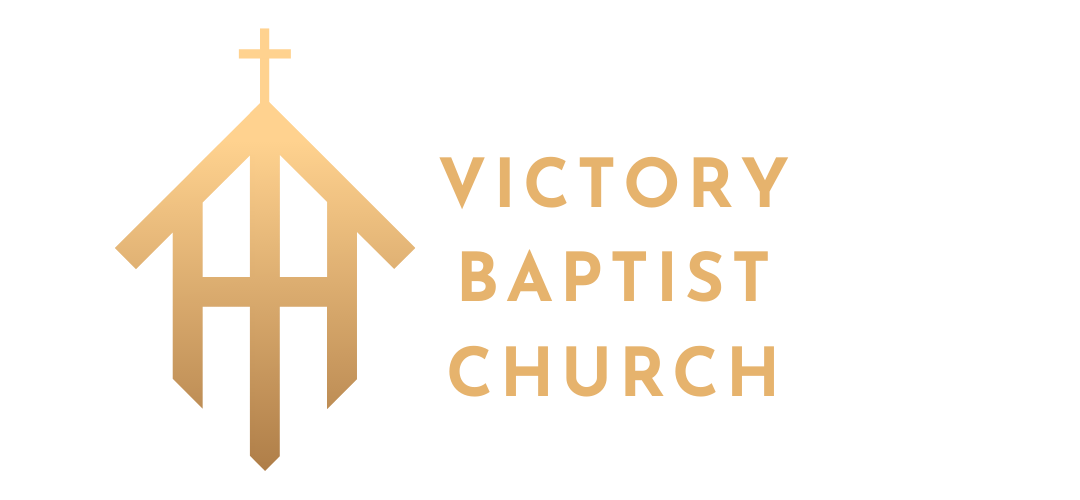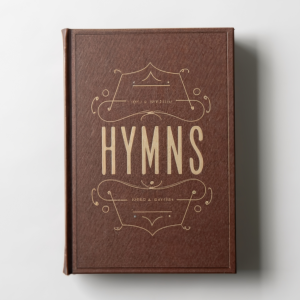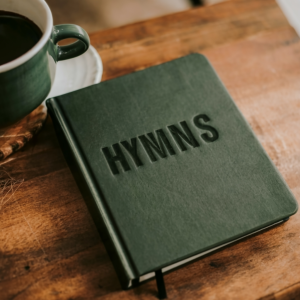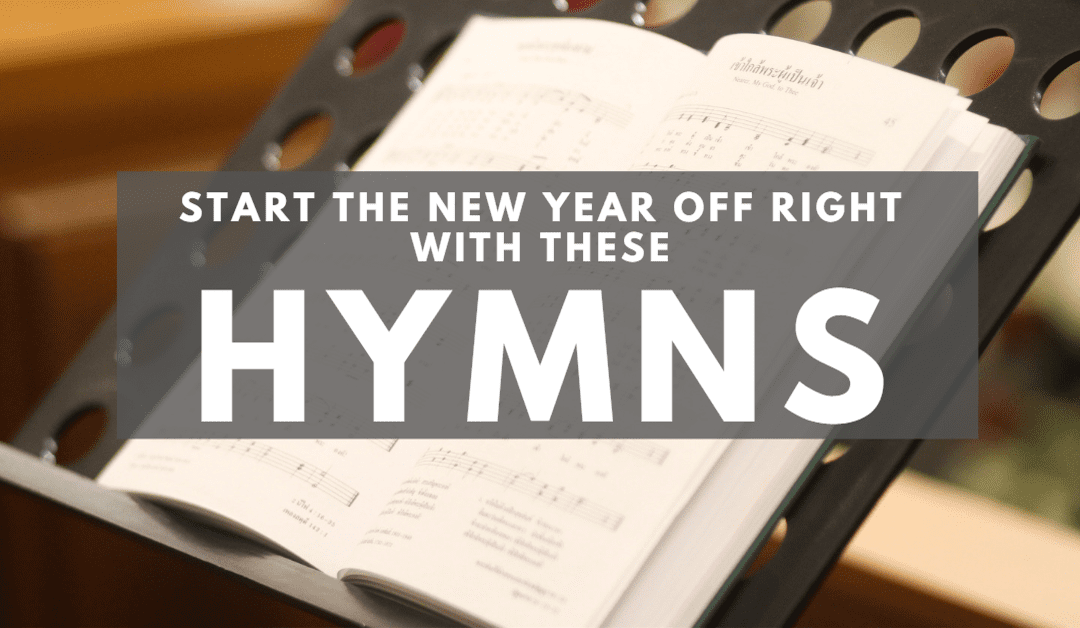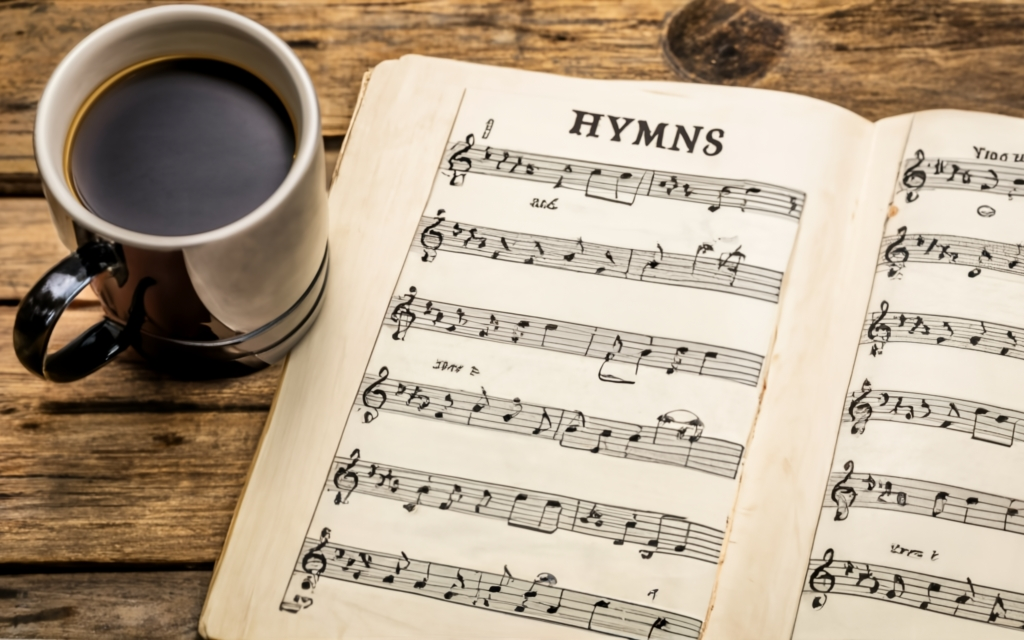
10 Inspiring Hymns and Their Stories: Explore Sacred Music History
Sacred music history is filled with hymns that have touched the hearts and souls of believers for generations. These hymns are more than just melodic expressions of faith; they carry stories of inspiration, reflection, and triumph. In this article, we will delve into the rich tapestry of sacred music history and explore the stories behind 10 inspiring hymns. From Martin Luther’s stirring “A Mighty Fortress Is Our God” to Joseph M. Scriven’s heartfelt “What A Friend,” each hymn has a unique story to tell. Join us on this musical journey as we unravel the threads of history and discover the timeless messages within these beloved hymns.
The Significance of Hymns in Worship
Hymns play a crucial role in worship, acting as a powerful means of expressing faith, praise, and devotion. Through their rich lyrics and melodious tunes, hymns create a sacred atmosphere, inviting worshippers to connect with the divine.
One of the significant aspects of hymns is their ability to convey deep theological truths in a poetic and accessible manner. The timeless messages woven within the verses provide a framework for believers to reflect on their faith, contemplate spiritual truths, and find comfort in the presence of God. As hymns are sung congregationally, they foster a sense of unity and collective worship, allowing individuals to join their voices together in praise.
“Hymns are like prayers set to music, allowing us to express our deepest emotions and desires to God,” says Reverend John Davidson, a worship leader with over 20 years of experience.
“They serve as a means of communication between the worshipper and the divine, offering a way to express gratitude, seek solace, or surrender in worship.”
Hymns also have a historical significance, carrying with them the stories and legacies of the composers who penned them. Each hymn weaves together personal experiences, biblical truths, and cultural influences, creating a tapestry of worship that spans across generations. As such, hymns not only connect us to the present moment of worship but also link us to the wider Christian tradition and the faithful who have gone before us.
The Impact of Hymns in Worship Practices
Within the context of worship practices, hymns serve several crucial purposes. First and foremost, they provide a vehicle for congregational participation, allowing worshippers to actively engage in the act of worship. When a congregation sings hymns together, it becomes a collective declaration of faith and a shared expression of devotion.
Hymns also create a sense of familiarity and continuity, particularly within established worship traditions. Many hymns have withstood the test of time and have become beloved treasures that have been passed down from one generation to another. As a result, they evoke feelings of nostalgia, evoke memories, and create a deep connection between the present and the past.
Furthermore, hymns can help to reinforce and teach theological concepts. The lyrics often contain deep theological truths and biblical references that can deepen understanding and faith. Through the repetition of key phrases and themes, hymns serve as a form of spiritual formation, shaping individuals’ beliefs and perspectives.
Overall, hymns hold a special place in the hearts and worship practices of believers, providing a means to express adoration, find solace, and deepen one’s relationship with God. Whether through traditional hymns or contemporary worship songs inspired by hymnody, these musical expressions continue to play a vital role in the worship experiences of believers worldwide.
Martin Luther’s Impact: “A Mighty Fortress Is Our God”
Martin Luther, a key figure in the Reformation, left a lasting impact on sacred music with his timeless hymn, “A Mighty Fortress Is Our God.” This hymn, written in the early 16th century, became a rallying cry for Protestant Christians during a time of religious upheaval and theological change. Its powerful lyrics and majestic melody continue to inspire and resonate with believers around the world.
The Story Behind the Hymn
“A Mighty Fortress Is Our God” was born out of the tumultuous environment of the Protestant Reformation, as Martin Luther sought to communicate his theological beliefs and provide comfort to his fellow believers. Inspired by Psalm 46, Luther crafted lyrics that declared God’s steadfastness and protection in the face of adversity. The hymn’s bold expression of faith and confidence in God’s sovereignty struck a chord with many, becoming a cornerstone of Protestant hymnody.”
Luther’s impact on sacred music extended beyond the composition of “A Mighty Fortress Is Our God.” He also played a vital role in establishing congregational singing in the vernacular language, as opposed to the traditional Latin used in Catholic worship. By advocating for the use of German hymns, Luther enabled the congregation to actively participate in worship, fostering a deep sense of community and shared faith.
The Enduring Influence
Centuries later, “A Mighty Fortress Is Our God” continues to be sung and cherished by Christians worldwide. Its message of trust in God’s strength and protection resonates in times of uncertainty and struggle. The hymn serves as a reminder of the unchanging nature of God and His faithfulness to His people.
Through his hymnody and theological contributions, Martin Luther left an indelible mark on sacred music, shaping the way we worship and express our faith. “A Mighty Fortress Is Our God” stands as a testament to Luther’s enduring influence and the power of music to unite believers in praise and worship.
Robert Robinson’s Reflection: “Come Thou Fount Of Every Blessing”
Robert Robinson’s heartfelt composition, “Come Thou Fount Of Every Blessing,” continues to resonate with believers, reflecting on the abundance of God’s blessings in their lives. The hymn, written in the 18th century, showcases Robinson’s deep gratitude for the grace and mercy he received from God.
The hymn’s powerful lyrics, such as “Tune my heart to sing Thy grace” and “Streams of mercy, never ceasing,” remind believers of their unwavering faith in God’s love and provide a heartfelt plea for His continuous guidance and strength. Through these words, Robinson expresses his longing to be filled with the joy and peace that come from a close relationship with God.
Robinson’s composition has left a lasting impact, inspiring generations of believers to seek a deeper connection with their faith. The hymn’s timeless message serves as a reminder of the infinite blessings that God bestows upon His people and encourages them to acknowledge His constant presence in their lives.
Ruminating on the Lyrics:
“Come Thou Fount Of Every Blessing”
Tune my heart to sing Thy grace;
Streams of mercy, never ceasing,
Call for songs of loudest praise.
Teach me some melodious sonnet
Sung by flaming tongues above.
Praise the mount! I’m fixed upon it,
Mount of Thy redeeming love.
In these verses, Robinson’s poetic mastery shines through. His use of vivid imagery, such as “streams of mercy” and “mount of Thy redeeming love,” paints a beautiful picture of the abundant blessings and redemptive power of God. Through his lyrics, Robinson invites believers to join in the joyous praise of God’s grace and mercy.
“Come Thou Fount Of Every Blessing” serves as a timeless reminder for believers to reflect on the countless blessings they have received and to express their thankfulness and love to God. Its enduring popularity is a testament to the profound impact that Robinson’s composition has had on the spiritual journeys of believers throughout history.
Conclusion
The hymn “Come Thou Fount Of Every Blessing” by Robert Robinson continues to be a cherished piece of sacred music, inspiring believers to recognize and celebrate the abundant blessings they receive from God. With its heartfelt lyrics and timeless message, this hymn serves as a reminder of the unending grace and mercy that believers can find in their relationship with God.
As we continue to explore sacred music history, we will delve into more inspiring hymns and their stories, uncovering the power and beauty of these timeless compositions.
Finding Comfort in Lina Sandell’s “Day By Day”
Lina Sandell’s timeless hymn, “Day By Day,” offers a comforting reminder of God’s unwavering presence and sufficiency in the midst of life’s challenges. This beloved hymn, written in the 19th century by the Swedish poet and hymn writer, continues to resonate with believers around the world, providing solace and assurance in times of uncertainty.
With its heartfelt lyrics and gentle melody, “Day By Day” encourages individuals to trust in God’s faithfulness and seek comfort in His steadfast love. The hymn’s poignant words, “Day by day, and with each passing moment, strength I find, to meet my trials here,” remind us that God’s grace is sufficient to carry us through every trial we face.
As we sing the verses of “Day By Day,” we are reminded of the eternal truth that our Heavenly Father is always with us, guiding us through life’s ups and downs. The hymn’s chorus, “Every day, every step I take, every moment, Lord, keep me near,” serves as a prayerful plea for God’s presence and guidance in our daily lives. Through these powerful words, we are encouraged to find comfort and strength in knowing that we are never alone on our journey.
Embracing God’s Sufficiency
Lina Sandell’s “Day By Day” beautifully encapsulates the essence of embracing God’s sufficiency in all circumstances. It serves as a reminder that even in the darkest moments, we can find reassurance and peace in His unwavering love. Through its timeless message and soothing melody, this hymn continues to bring comfort and hope to countless hearts, allowing believers to trust in God’s provision and grace each day.
Thomas Chisholm’s Proclamation: “Great Is Thy Faithfulness”
Through the hymn “Great Is Thy Faithfulness,” Thomas Chisholm beautifully captures the unwavering nature of God’s faithfulness, inspiring believers to trust in Him without fail. The heartfelt lyrics of this hymn remind us of God’s constancy and goodness, even in the midst of life’s challenges.
Chisholm writes, “Great is thy faithfulness, O God my Father / There is no shadow of turning with thee.” These words reinforce the idea that God never changes; His faithfulness towards His people remains steadfast, never wavering. It serves as a powerful reminder that we can rely on Him in all circumstances, knowing that He will never leave us or forsake us.
In addition to its lyrical beauty, “Great Is Thy Faithfulness” is also characterized by a simple yet powerful melody that resonates with listeners. The combination of the lyrics and the melody creates an atmosphere of trust and assurance, allowing believers to find solace and peace in God’s faithful presence.
This hymn has stood the test of time and continues to be sung in churches and gatherings around the world. Its enduring popularity speaks to its ability to connect with the hearts of believers, reminding them of God’s faithfulness throughout history and in their personal lives.
Katherine Hankey’s Testimony: “I Love To Tell The Story”
Katherine Hankey’s hymn, “I Love To Tell The Story,” serves as a heartfelt expression of gratitude for the redemptive story of Jesus and His love that transcends time. Through her words, Hankey beautifully captures the essence of the Gospel and its impact on believers.
The hymn begins with the line, “I love to tell the story, of unseen things above,” emphasizing the joy and eagerness to share the message of salvation. Hankey’s words remind us of the importance of sharing our faith and proclaiming the good news, as it has the power to transform lives.
In the chorus, Hankey writes, “I love to tell the story, ’twill be my theme in glory, to tell the old, old story of Jesus and His love.” This powerful refrain emphasizes the eternal significance of the story of Jesus and the love He has for each and every one of us. It reminds us that His story is not just a story of the past, but a story that continues to shape our lives today.
Katherine Hankey’s hymn, “I Love To Tell The Story,” stands as a testament to the enduring power of the Gospel message. Its timeless lyrics inspire believers to share the story of Jesus and His love with the world, spreading hope, joy, and redemption to all who listen.
Horatio G. Spafford’s Journey: “It Is Well With My Soul”
Horatio G. Spafford’s hymn, “It Is Well With My Soul,” stands as a testament to the unwavering faith and peace that can be found in the midst of profound loss and grief. Spafford, a successful lawyer and devout Christian, experienced unimaginable tragedy when his four daughters perished in a shipwreck. Devastated by this heartbreaking loss, he penned the lyrics to this hymn as a reflection of his unshakeable trust in God’s sovereign plan.
In the face of such immense sorrow, Spafford’s hymn offers a remarkable message of hope and resilience. The opening lines, “When peace like a river, attendeth my way, / When sorrows like sea billows roll,” vividly capture the tumultuous emotions he must have felt. Yet, within those very same verses, he declares, “It is well, it is well, with my soul.” These powerful words demonstrate Spafford’s profound belief that even in the midst of immense pain, his soul could find serenity and peace through God’s grace.
“It Is Well With My Soul” has resonated with countless individuals over the years, offering solace and strength in times of personal tragedy. The hymn’s enduring popularity can be attributed to the universal nature of loss and the universal need for hope. Its poignant affirmation of faith reminds us that even in our darkest moments, we can find comfort in the unwavering love of God.
Through the haunting beauty of its melody and the profound simplicity of its lyrics, “It Is Well With My Soul” serves as a gentle yet powerful reminder that no matter the trials we face, God’s peace can transcend all earthly understanding. This hymn continues to touch the hearts and souls of believers, inspiring them to persevere and find solace in the unwavering presence of the Divine.
Sarah Flower Adams’ Inspiration: “Nearer My God To Thee”
Sarah Flower Adams drew inspiration from the biblical narrative of Jacob’s dream in Genesis to compose the beloved hymn, “Nearer My God To Thee,” which invites believers to draw closer to God in every circumstance.
The hymn’s poignant lyrics paint a picture of unwavering faith and trust in God’s presence. As the story of Jacob’s dream unfolds, we are reminded of the ladder connecting heaven and earth, symbolizing the connection between God and His people. In the face of challenges and trials, “Nearer My God To Thee” serves as a heartfelt plea to be near God, seeking solace, guidance, and strength in His presence.
“Nearer My God To Thee” resonates with believers across generations, offering comfort and reassurance. The hymn’s timeless melody and powerful lyrics serve as a reminder that no matter the circumstance, we can always draw closer to God and find comfort in His unfailing love and grace.
Today, as we sing the words of “Nearer My God To Thee,” we join with countless others who have found solace in its message throughout history. This hymn reminds us that our journey of faith is not one we navigate alone; rather, it is an invitation to draw nearer to God, finding strength, hope, and peace in His presence.
George Bennard’s Celebration: “The Old Rugged Cross”
George Bennard’s timeless hymn, “The Old Rugged Cross,” joyfully celebrates the sacrifice of Jesus on the cross as the ultimate symbol of redemption and salvation. With its powerful lyrics and heartfelt melody, this hymn has become a beloved anthem of faith for generations of believers.
The lyrics of “The Old Rugged Cross” vividly portray the profound love and sacrifice of Jesus, reminding us of the significance of His death and resurrection. Through verses such as “So I’ll cherish the old rugged cross, Till my trophies at last I lay down,” the hymn invites us to reflect on the immeasurable value of the cross and the eternal hope it represents.
As George Bennard beautifully encapsulates in the hymn’s chorus, “I will cling to the old rugged cross, And exchange it some day for a crown,” we are reminded of the assurance of salvation that Jesus’ sacrifice offers. The hymn’s melody, simple yet stirring, further enhances the emotional impact of its message, drawing worshippers into a deep sense of gratitude and adoration.
“The Old Rugged Cross” has stood the test of time and continues to inspire Christians around the world, reminding them of the timeless truth that their sins were borne on the cross by Jesus, and through Him, they find forgiveness and eternal life. This hymn serves as a powerful reminder of the central message of the gospel and the hope that it brings to all who believe.
Augustus M. Toplady’s Reflection: “Rock Of Ages”
Augustus M. Toplady’s hymn, “Rock Of Ages,” invites believers to find solace and security in Christ, the unshakeable foundation of their faith. With its powerful lyrics and timeless melody, this hymn has resonated with generations of worshippers, reminding them of God’s steadfast love and grace.
The words of “Rock Of Ages” paint a vivid picture of the Christian’s reliance on Jesus as their refuge and source of strength. As believers sing the opening lines, “Rock of Ages, cleft for me, let me hide myself in thee,” they express their desire to find shelter in the rock-solid foundation that Christ provides. This hymn beautifully encapsulates the Christian’s need for redemption and the assurance that Jesus, the solid rock, offers.
“Rock of Ages, cleft for me, let me hide myself in thee.”
Throughout the verses of “Rock Of Ages,” the hymn continues to affirm the sufficiency of Christ’s sacrifice on the cross. The words remind believers that only through His blood can sin be washed away and the soul be made whole. It is a hymn of surrender, acknowledging our utter dependence on the grace of God and His power to save.
“Rock Of Ages” remains a cherished hymn, reminding us that when the storms of life rage and the foundations tremble, we can find steadfastness and peace in Christ alone. As we sing these timeless words, we are reminded of the unchanging and unwavering nature of our Savior, who is the rock upon which our faith is built.
Joseph M. Scriven’s Reminder: “What A Friend”
Joseph M. Scriven’s moving hymn, “What A Friend,” serves as a powerful reminder of the unwavering friendship and love of Jesus, who is always there for us. With lyrics that touch the depths of the soul, this hymn carries a message of comfort, solace, and hope in times of distress and despair.
The words of “What A Friend” express the profound truth that Jesus is not only our Savior but also our constant companion, guiding us through life’s trials and offering His support every step of the way. As we sing these heartfelt lyrics, we are reminded that no matter the circumstances or challenges we may face, Jesus is our ever-present friend, ready to lend a listening ear and extend His love and grace.
“What a friend we have in Jesus, all our sins and griefs to bear. What a privilege to carry everything to God in prayer.”
These lines from the hymn encapsulate the essence of the Christian faith – the assurance that we have a friend in Jesus who is willing to carry our burdens and offer us peace and rest. The comforting melody and timeless lyrics of “What A Friend” continue to resonate with believers, reminding us of the unchanging love and faithfulness of our Savior.
The Enduring Legacy of Inspirational Hymns
The enduring legacy of inspirational hymn lies in their ability to transcend time, inspiring and uplifting believers from one generation to the next. These hymns hold a special place in the hearts of Christians worldwide, as they connect individuals to their faith and provide solace, strength, and hope in times of joy and sorrow.
The hymns and their stories are a testament to the profound impact music has on the human spirit. From Martin Luther’s powerful hymn “A Mighty Fortress Is Our God,” which carried the spirit of the Reformation, to Joseph M. Scriven’s gentle reminder in “What A Friend,” each hymn carries a unique message that resonates with believers across centuries.
Through their powerful lyrics and melodies, these hymns invite us to reflect on our relationship with God and find comfort and guidance amidst the challenges of life. As we sing these hymns, we join a long and rich tradition, connecting with the believers who came before us and those who will come after. The enduring legacy of inspirational hymns is a reminder of the timeless nature of faith and the power of music to unite and inspire souls.
The Timeless Messages of Faith, Hope, and Trust
These 10 inspiring hymns and their stories remind us of essential aspects of our Christian faith. They speak of God’s faithfulness, His redeeming love, and His constant presence in our lives. They encourage us to draw near to Him, find strength in His promises, and trust in His provision.
As we sing these hymns, their messages become deeply ingrained in our hearts, shaping our understanding of God’s character and deepening our relationship with Him. The enduring legacy of inspirational hymns ensures that these messages of faith, hope, and trust resonate with believers in every generation.
So, let us embrace the timeless beauty of these hymns. Let us sing their melodies, contemplate their lyrics, and allow them to speak to our souls. As we do, we not only honor the composers who penned these incredible hymns but also become a part of the enduring legacy of inspirational music.
The Power of Hymns: Their Lyrics and Melodies
The power of hymns resides in their beautifully crafted lyrics and captivating melodies, which have the ability to stir the soul and evoke profound emotions. Hymns are not just mere songs; they are heartfelt expressions of faith, hope, and reverence towards God, serving as a source of comfort, inspiration, and spiritual connection for believers.
With carefully chosen words and poetic imagery, hymn lyrics convey timeless truths about God’s love, grace, and redemption. They provide a rich tapestry of theological teachings, serving as a vehicle for worship, reflection, and meditation. Hymns often incorporate biblical references and vivid metaphors, enabling listeners to engage deeply with the scriptural messages they convey.
Furthermore, hymn melodies have a unique ability to transport us to a higher plane of spiritual consciousness. Whether through soothing harmonies or majestic arrangements, they create an atmosphere conducive to worship, enabling individuals to pour out their hearts in adoration and praise. The melodies themselves can linger in our minds long after the hymn has ended, serving as a constant reminder of the truths we have sung.
The Impact of Hymns on Worship
“Hymns have the power to unite a congregation in a shared experience of worship, transcending time and space. They enable us to express our deepest longings, joys, and sorrows before God, fostering a sense of communion and spiritual unity among believers.” – Dr. Sarah Johnson, Sacred Music Historian.
Through their powerful combination of poetic lyrics and captivating melodies, hymns have the ability to touch hearts, transform lives, and create a sense of unity among worshippers. They offer a sanctuary of solace in times of trouble, a wellspring of inspiration in moments of doubt, and a channel for expressing gratitude and devotion to God.
As we continue to embrace the rich legacy of hymns, we honor the contributions of their composers, who, through their words and melodies, have left an indelible mark on sacred music history. By cherishing these timeless hymns, we ensure that their messages of faith and hope continue to resonate with believers, transcending generations and bringing us closer to the divine.
The Composers Behind the Hymns: Their Contributions and Legacies
The hymn composers have made significant contributions to sacred music, leaving behind a rich legacy of musical worship that continues to impact believers today. Through their heartfelt compositions, they have captured the essence of faith, weaving together words and melodies that resonate with the deepest parts of our souls.
“Music is a gift from God, and these composers have used their talents to create hymns that touch the hearts of millions. Their works are not mere songs but expressions of praise, gratitude, and devotion.”
Each composer brings their unique perspective and experiences, infusing their hymns with personal stories and reflections. Their dedication to blending theology, poetry, and music has resulted in hymns that stand the test of time, transcending generations and cultural boundaries.
Their Contributions:
- Martin Luther, with “A Mighty Fortress Is Our God,” sparked a hymn-writing movement during the Reformation and empowered believers with a renewed sense of God’s strength and protection.
- Robert Robinson’s “Come Thou Fount Of Every Blessing” invites us to reflect on the abundant grace and mercy of God.
- Lina Sandell’s “Day By Day” offers solace and hope, reminding us to trust in God’s provision and guidance.
- Thomas Chisholm’s “Great Is Thy Faithfulness” reminds us of God’s unwavering faithfulness in every season of life.
Their Legacies:
The legacies of these composers extend far beyond their lifetimes. Their hymns continue to be sung in churches around the world, weaving a tapestry of worship and praise. Through their compositions, they have left a lasting impact on the Christian faith, connecting believers across time and space.
“The hymns written by these composers transcend boundaries, denominations, and cultures. They unite believers in a shared language of worship and serve as a reminder of our common faith.”
As we sing these hymns, we join in a timeless tradition of praising God, celebrating His love, and finding solace in His presence. The hymn composers have gifted us with melodies that resonate deep within our hearts, inspiring us to worship, reflect, and draw closer to God.
Conclusion: Embracing the Spiritual Journey Through Hymns
The spiritual journey is enriched through the power of hymns, inviting believers to connect with their faith, find solace, and deepen their relationship with God. These 10 inspiring hymns and their stories, which span sacred music history, continue to resonate with worshippers across generations. Through their timeless messages of faith, hope, and trust in God, these hymns offer a profound sense of comfort and inspiration.
The beauty of hymns lies in their ability to speak to the depths of the soul. Whether it’s the triumphant declaration of God’s faithfulness in “Great Is Thy Faithfulness” or the contemplative reflection on Christ as the rock of salvation in “Rock Of Ages,” each hymn offers a unique perspective on the journey of faith.
From Martin Luther’s impactful hymn during the Reformation to Horatio G. Spafford’s poignant composition following the tragedy in his life, these hymns bear witness to the personal stories and experiences of their composers. As we sing these hymns, we are not only connecting with their stories but also with the rich history and tradition of sacred music.
As believers embrace the spiritual journey through hymns, they are drawn into a deeper understanding of their faith and a closer relationship with God. Through hymns, we find solace in times of trial, strength in times of weakness, and hope in times of despair. The enduring legacy of these hymns is a testament to their power to inspire, uplift, and unite believers in their shared worship experience.
FAQ
Q: What are some inspiring hymns and their stories?
A: Here are 10 inspiring hymns and their stories that explore sacred music history:
Q: Who wrote the hymn “A Mighty Fortress Is Our God”?
A: “A Mighty Fortress Is Our God” was written by Martin Luther.
Q: What is the meaning behind “Come Thou Fount Of Every Blessing”?
A: “Come Thou Fount Of Every Blessing” was written by Robert Robinson and reflects on God’s redeeming love.
Q: Who composed the hymn “Day By Day”?
A: “Day By Day” was written by Lina Sandell and finds comfort in God’s sufficiency amidst trials.
Q: Who wrote the hymn “Great Is Thy Faithfulness”?
A: “Great Is Thy Faithfulness” was written by Thomas Chisholm and highlights God’s faithfulness in every season of life.
Q: Who composed “I Love To Tell The Story”?
A: “I Love To Tell The Story” was written by Katherine Hankey and praises Jesus and His sacrifice.
Q: What is the story behind “It Is Well With My Soul”?
A: “It Is Well With My Soul” was written by Horatio G. Spafford after the tragic death of his daughters.
Q: What inspired the hymn “Nearer My God To Thee”?
A: “Nearer My God To Thee” was written by Sarah Flower Adams and draws inspiration from Jacob’s dream in Genesis.
Q: Who composed “The Old Rugged Cross”?
A: “The Old Rugged Cross” was written by George Bennard and celebrates the work of Jesus on the cross.
Q: What is the significance of “Rock Of Ages”?
A: “Rock Of Ages” was written by Augustus M. Toplady and reflects on Christ as the rock of salvation.
Q: Who wrote the hymn “What A Friend”?
A: “What A Friend” was written by Joseph M. Scriven and reminds us that Jesus is always there for us.
